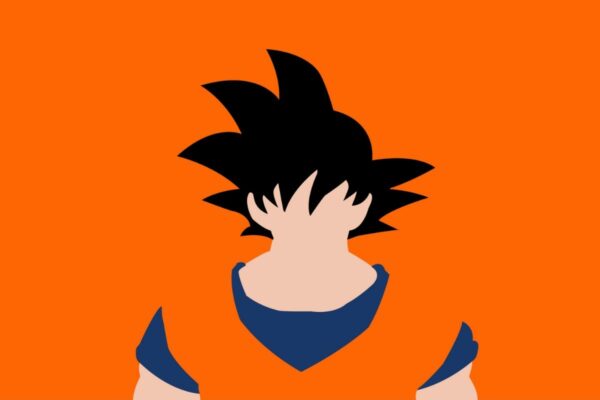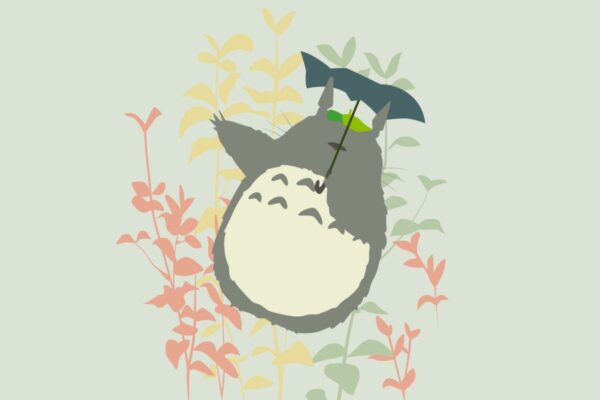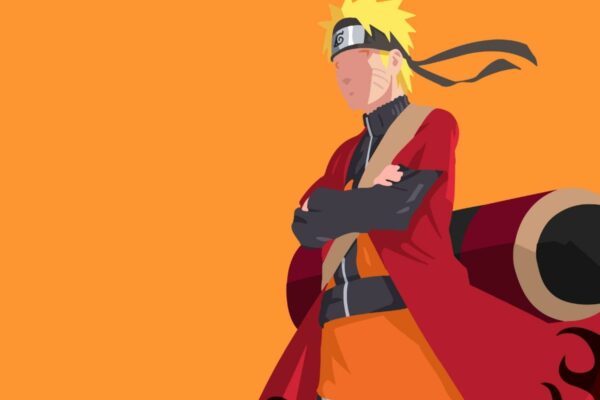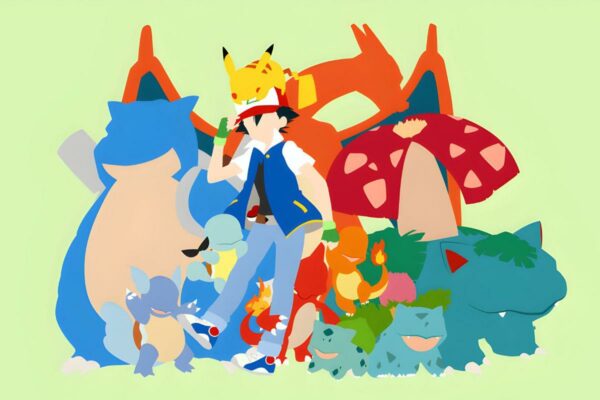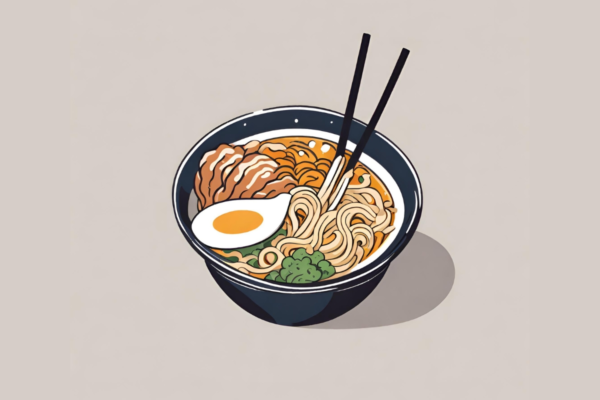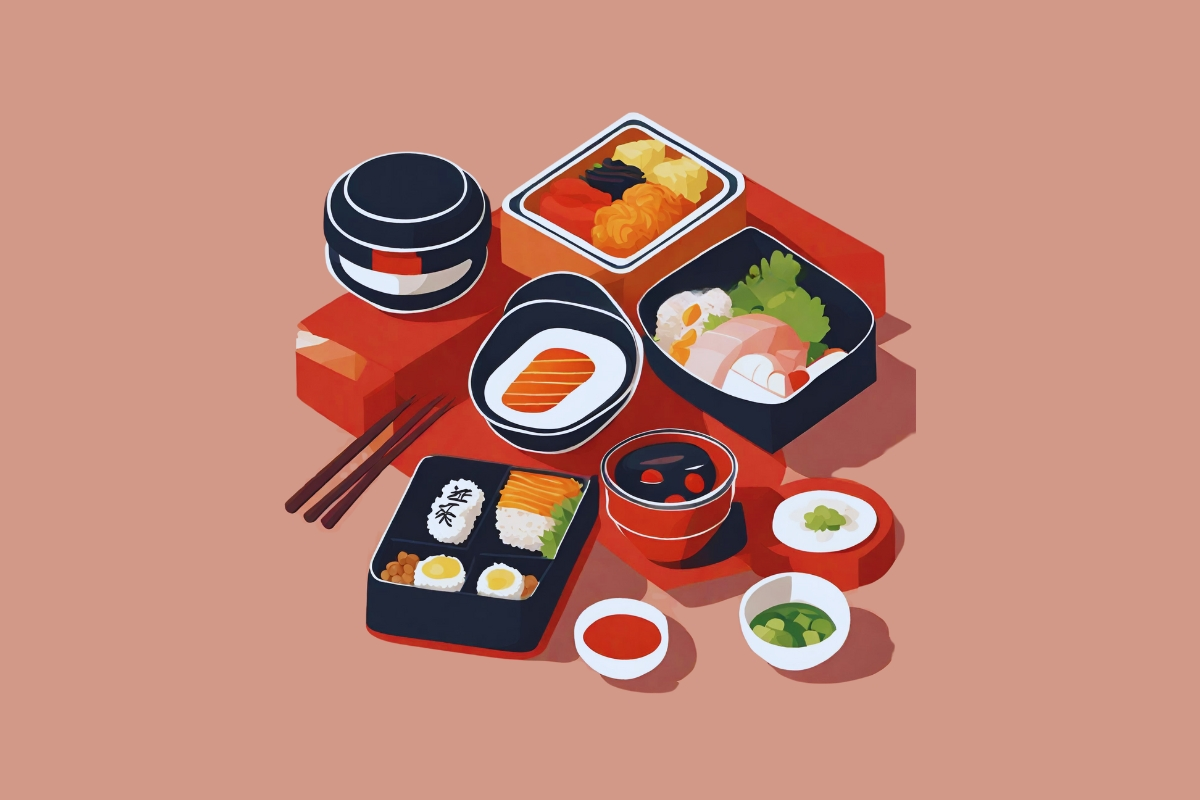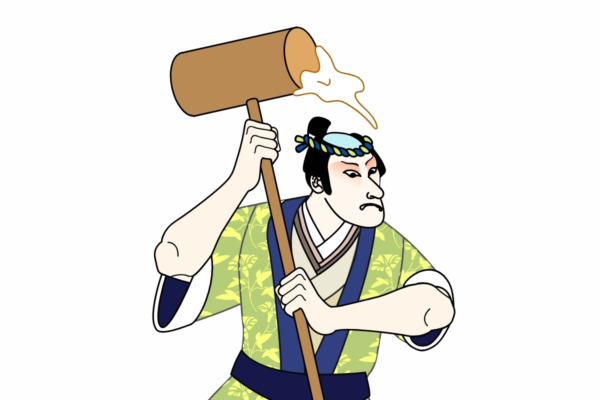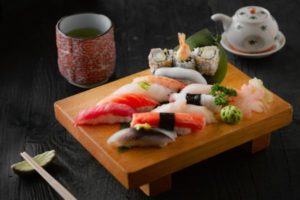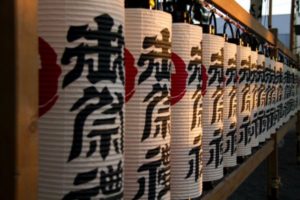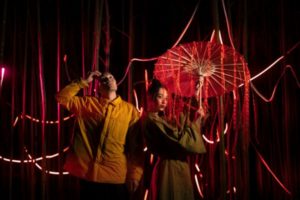An early evening atmosphere had already arrived at Sway Gallery before I had. Warmly greeted by gallery staff, I had caught my first glimpse of the heartfelt displays of Jiji & Kinako. It told of the story of a once energetic and joyful Jiji, a 94-year-old man who had spiralled into a world of unhappiness due to an ongoing development of Alzheimer’s Disease.
For those who aren’t aware, Alzheimer’s Disease eats away at one’s mind, including mood, motivation, body movement, and memory. In spirit, it’s a disease that eats away at one’s soul… or so we thought, until a kitten named Kinako.
“Change doesn’t necessarily make someone a different person.” – Jiji.

Now a chubby 10kg, Tabby Cat Kinako made his debut into Jiji’s life, bringing happiness and mischief like a joyful CATastrophe.
Like a television sitcom drama, Jiji would fulfill his daily hobbies such as cutting out newspaper clippings to glue into his scrapbook, while Kinako’s hobby was to ruffle or sleep on those newspaper clippings.
Kinako, a shy cat, loved the attention from Jiji as he yelled “Oi!”, the pair would often squabble before making peace with each other.
A flock of Cranes.

As I walked around the gallery, I noticed that the images were mounted on traditional Japanese ‘Washi’ paper. Some photographs propped higher than others, ironically, felt as if I were looking at memories.
Akiko Dupont, the exhibiting artist and documentary photographer of Jiji & Kinako (Also Granddaughter to Jiji), told me that Washi Paper’s soft texture perfectly represented not only Japanese culture but a feeling of ‘FuwaFuwa’ a Japanese onomatopoeia for a cloud-like lightness. My impression of a gallery of ‘memories’ was further reinforced by that statement.
Not only this, but Kinako’s other responsibility was to tear up innocent pieces of Washi Paper with his claws!
Other surprises and unmentioned details about Jiji can be found out at the gallery. I’ll share that unbeknownst to me, Jiji was a World War 2 Veteran, trained as a Kamikaze jet fighter, fortunately, relieved of duty just before flying, due to the end of the war!
Jiji’s Kind, Wise, and Giving demeanor portrays that of traditional Japanese values. Values that we in the western world have much respect and admiration for. It was Jiji’s transformation into an unhappy Alzheimer’s suffer, that brought much dismay to Akiko, thus inspired her search for solutions, Kinako being a major contributor.
A message that stood out for me whilst I contemplated the story, was a quote from Jiji extracted from a long paragraph;
“Change doesn’t necessarily make someone a different person.”
He said hidden inside, amongst the disarray of changing mind and fading connections, he was still there. It was touching to see that a bond between two beings, in this case, Cat and Human, allowed the light of his spirit to shine through once again. I thought about how we should rethink diseases such as Alzheimer’s and Dementia.
The fight against Alzheimer’s Disease still goes on, purchasing Jiji & Kinako photography and artworks at the Sway Gallery exhibition will go towards charity donations for Alzheimer’s.
After a while, I began to release that I had been surrounded by little paper birds throughout my journey around the gallery. Little folded Paper Cranes (Japanese Origami) were perched throughout.
Akiko told me that she had folded 200 of them because of an ancient Japanese legend called ‘Senbazuru‘ 千羽鶴’, which means “Thousand Origami Cranes” which I felt needed to be said with a bang of a Taiko Drum. The legend tells us that, if one is to fold 1000 origami cranes, then we would be granted one wish such as being bestowed with good luck, longevity, or recovery from sickness.
Akiko mentioned that her Grandfather, Jiji, would often fold cranes together. She wishes to share the legend with whoever should visit her exhibition, thus created bowls full to give away as a gift. Delicately folded with care, the origami crane has been created with variations types of textured cards and Japanese patterned paper. My own, gifted by Akiko and the Sway Gallery staff is currently standing blessing my desk as I write this article.










